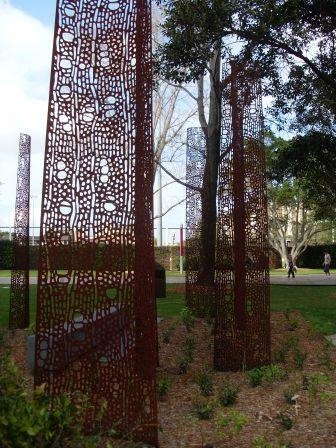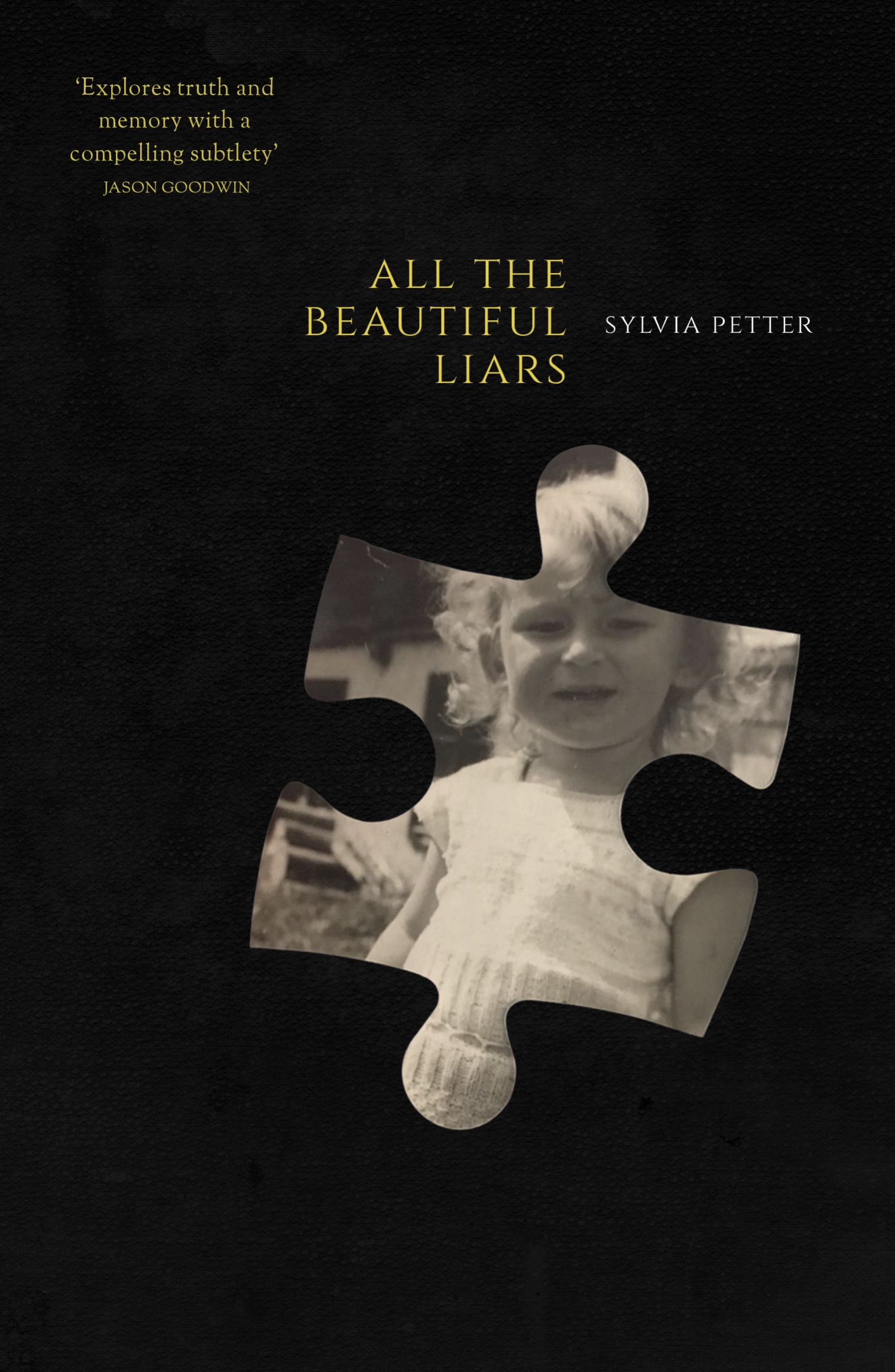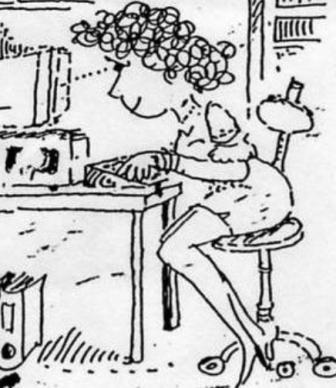Early June, I was privileged to listen to Anita Heiss in readings, talks and at the Stephen Wurm Symposium at which Anita gave the keynote: Aboriginal writing: celebrating the new Australian literature. Dr Anita Heiss, member of the Wiradjuri nation of central New South Wales, academic, author and social commentator, is an Adjunct Professor with Jumbunna Indigenous House of Learning, UTS. I have since read her book Am I Black Enough for You? and am looking forward to getting a copy of her latest book, Tiddas.
In my talk at the symposium, already moved by what I had heard the two previous days, I made a slight change to the beginning of my talk. What I said then seems strangely apt now that the Conference is over.
Finding a voice through languages and literatures
(2014 Stephen Wurm Symposium, Australian Embassy, Vienna)
Abstract: Sylvia Petter traces her personal journey from Vienna to Australia and back via France, the United Nations, the EU, universities, and stories, in search of a voice with which to tell them. The effects of literatures, languages, cultures on the life path as one, more often than not, outside any statistics and where “home” is a fiction form an integral part of her approach to the telling of stories, stories as a medium for bearing witness to changes and as a means of sharing.
I’m honoured to be able to share with you my story about finding my voice, and perhaps my identity, as an Australian, a writer writing in English and now living in Austria since 2006. The insights and emotions experienced over the last couple of days listening to Anita Heiss have perhaps changed the way I feel about the last lines of my presentation.
I was born in Vienna and grew up in Australia. We didn’t speak German at home. My parents were “new” Australians for whom migration meant one country, one nationality. Australia. My generation was a lucky one, with perhaps a short memory. Uni was free with a Commonwealth scholarship as the last year of the five-year high school system. I left Sydney straight after finishing my exams in French, German and Psychology. Not for a gap year. I wanted to see where I was born. Vienna. And after that, no plans.
Professor Hesse, my German professor at UNSW, also a “new” Australian who had transited via a university career in the then apartheid South Africa taught me that education wasn’t about marks and degrees. He encouraged me to go to literary events and at one I met the Austrian poet, Rudi Krausmann who gave me a story by Heinrich Böll, “Die Ungezählte Geliebte”. In English it’s called “At the Bridge”.
It’s about a war veteran whose job is to count how many people cross a bridge. He secretly falls in love with a girl and does not include her in his statistics. When he gazes after her, others also slip through. I kept the photocopy of the story in my papers for years. Forgotten. But I recently found it again, and I think the not being counted represents how I found my voice and perhaps my identity. In Vienna in 1969, fluent in Schiller’s Glocke but unable to converse, least of all buy, even a “Semmel” without pointing, I discovered other new words, one of which was “Dolmetsch”, written in stone over the right-hand entrance to the University of Vienna where now the campus shop is. So I signed up for “Deutsch für Ausländer”, finished my written exams, slipped through without doing the orals due to a difference of opinion with my Austrian professor, so different to Professor Hesse at UNSW.
The seventies had started and I became a fan of Kurt Sowinetz and the “Dialektwelle”. I learnt to understand Viennese dialect but to this day I can’t get my tongue around some of the expressions. “You have to be born in Vienna,” I was told.“I was,” I said, and they shook their heads.
By 1972 I felt I was sinking in a grey dull felt in Vienna and had to get away from the city of my birth, but didn´t know where to go or how. Back then, UNIDO was just behind the university and was searching for German-mother tongue typists for the Helsinki Consultations.
“Your mother tongue is German?”
“I was born in Vienna.”
“Can you type?”
“Yes.” They didn´t ask for the number of fingers.
My answers to the urgent questions had me on a flight to Helsinki the next day. There were three more stints in Helsinki – winter and summer – which left me with a fondness for that part of the world, its language and people. Kippis(Prost) entered my vocabulary as the Consultations became the Conference on Security and Cooperation in Europe and took me to Geneva for what was to become my first job as a German translator, the only Australian hired by the conference. German translators had to come from East and West Germany, Switzerland and Austria. Again I had slipped through on the „al“ of Austr(al)ia.
My links with my East German colleagues, multiple visits to the GDR – I was apolitical – cost me, it was rumoured, a consular job. “You were a bit too pink around the gills,” I was told. “They’re my friends,” I said. That friendship I am happy to say has weathered the politics of mistrust that reigned for years on both sides of the Wall. My former colleague and dear friend, a translator in Chemnitz, translated my stories into German which, thanks to crowdfunding, will be a book called Geflimmer der Vergangenheit, Glimmer of the Past. Even my recent crowdfunding experience defies any statistics.
After the European Security Conference, I tried my luck in Paris. The French were in the middle of nuclear tests at Muruora and in Sydney all things French were being boycotted, making a work permit for an Australian in Paris out of reach. Back in Geneva, temping, I started dreaming in French. I was speaking a trilingual mishmash when in 1976 I went to Brussels as an interpreting trainee, outside future rules, as the first Australian working in the HQ of what was to become the European Union. In Brussels, I miserably failed my final exams because I was only capable of smoothly interpreting when I believed the words coming out of my mouth. I failed the exam, but won the insight that I needed my own words. And I also needed a job. So I turned to trilingual proofreading – Spanish had to replace the German – and worked my way up in telecomms policy for a Geneva-based UN specialised agency.
For almost 30 years I stayed there and lived over the border in France. I had become multilingual, but had lost my mother tongue. When I was 40, after deciding against doing one of the newly introduced MBAs and considering stepping off the career path, I started writing fiction. I wanted to do something I could do for the rest of my life. Never having done English literature beyond spouting reams of Shakespeare’s Julius Caesar from the top of the kitchen table for my leaving certificate exams, but having knowledge of German and French literature, I started learning English backwards, working online in the pre-web days in a writing boot camp, claiming my right to write.
An early story, “The Tschusch”, was triggered by emotions I felt when Le Pen (father) was rising in France, but I was too close. On a trip to Carinthia when Jörg Haider was running for office the emotions I felt when his eyes followed me from the large street posters led me to set the story in Austria. I wasn’t living in Austria then, so had “Narrenfreiheit”, a state similar to slipping out of the statistics.
Serendipity and and a wrong click on the computer keyboard brought me to my first International Conference on the Short Story in English in 2002 in New Orleans, where I spoke on the need for writers and literary magazines not to fear the Internet and to make their voices heard in the upcoming discussions preceding the World Summit on the Information Society. I strongly believed, as mentioned at the Adelaide Festival around the same time, that writers as artists were engineers of the imagination. I returned to the conference held every two years, always in a different city, Alcala de Henares, Cork, Toronto, North Little Rock. I was coming the closest I ever might to a state of “home”, a state which had already become a fiction for me. People whose names I hardly knew, although some of them were very well known, were reading stories. Scholars were giving papers about stories. Stories were everywhere.
In 2009, I completed my PhD in Creative Writing at UNSW as a distance scholar by research. I was 60. It took me five years and was the most difficult thing I had ever done in my life. It was a frustrating time of learning, enquiring, starting from scratch, but it was also a rewarding period. You don’t need a PhD to be a writer, but the experience fed into my writing and reinforced my need to find the language in which to tell my stories. The same year I started a part-time appointment at the University of Vienna in the Education Department as an academic editor, and also as what I sometimes call “the local English washing machine”. Next month I will be proud to have been able to bring the 13th International Conference on the Short Story in English to Vienna, somehow completing a circle against all odds, since it was the Director of that Conference, Dr Maurice A. Lee, Dean of the College of Liberal Arts at the University of Central Arkansas, who pushed me to complete my PhD.
A kickoff event for the short story conference on 14 July, when we storm Vienna; will feature Australian and Austrian writers together at a reading at the Alte Schmiede where the German-language anthology, Austra(al)ia will be launched.
Through languages and literature I have found my voice, I am content to live outside of the statistics, I do believe that “home” is a fiction, but you have no doubt all seen the t-shirts marked “No Kangaroos in Austria”. They, too, are fiction, for I am a kangaroo in Austria. I have found my voice in Austr(al)ia.
i live in the al…
the al of aus-tr-al-ia?
i live in the aus
the aus of aus-lander?
the place of freedom…
the freedom of fools?
not al-one, but al-ways…
an al-ien?
Thank you.





I’ll be getting Austr(al)ia into paperback and Kindle next year. Money from sales will go towards helping an Austrian writer attend the next conference. Sometimes being lost opens all sorts of exciting doors. Ta for the good words. Glad we connected.
Brilliant story! And I’m very honoured to be in Austra(al)ia. I’m also tri-lingual and still lost in Europe. You are right – fiction is some sort of anchor.